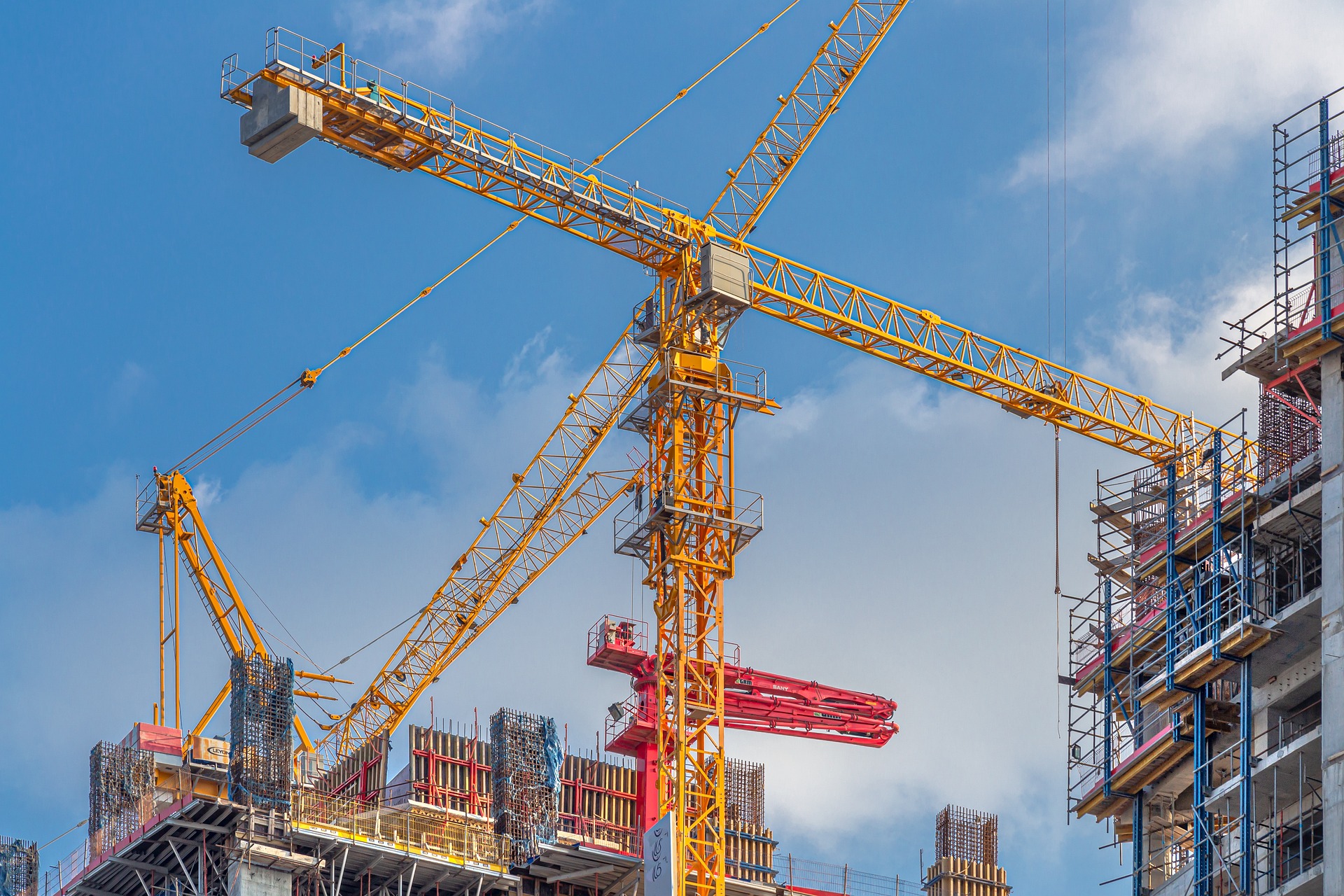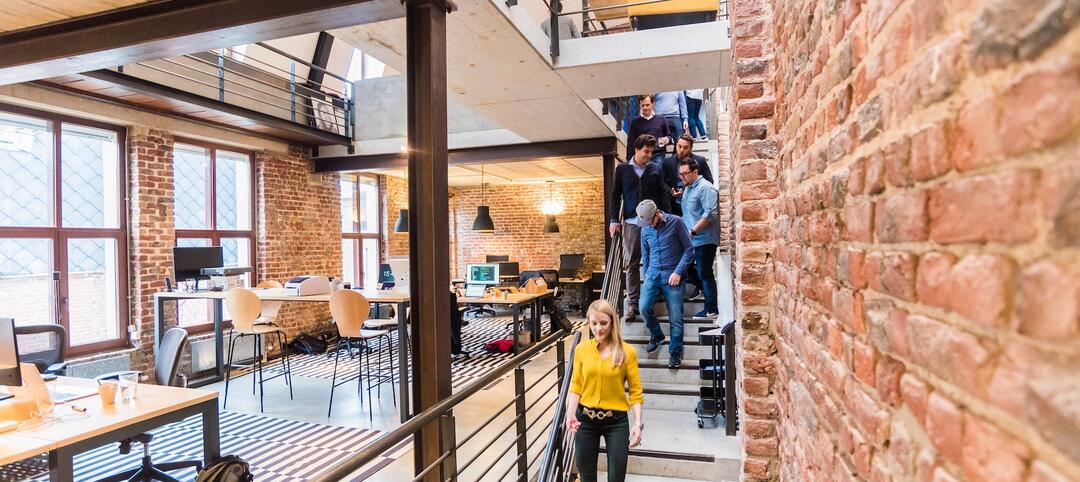Associated Builders and Contractors reported today that its Construction Backlog Indicator increased to 8.4 months in June, according to an ABC member survey conducted June 20 to July 3. The reading is down 0.5 months from June 2023.
View ABC’s Construction Backlog Indicator and Construction Confidence Index tables for June. View the full Construction Backlog Indicator and Construction Confidence Index data series.
The entire decline in backlog observed over the past calendar year is attributable to the Middle States and Northeast. Backlog in the South and West regions was unchanged between June 2023 and June 2024.
ABC’s Construction Confidence Index readings for sales and staffing levels fell slightly in June, while the reading for profit margins improved. All three readings remain above the threshold of 50, indicating expectations for growth over the next six months.
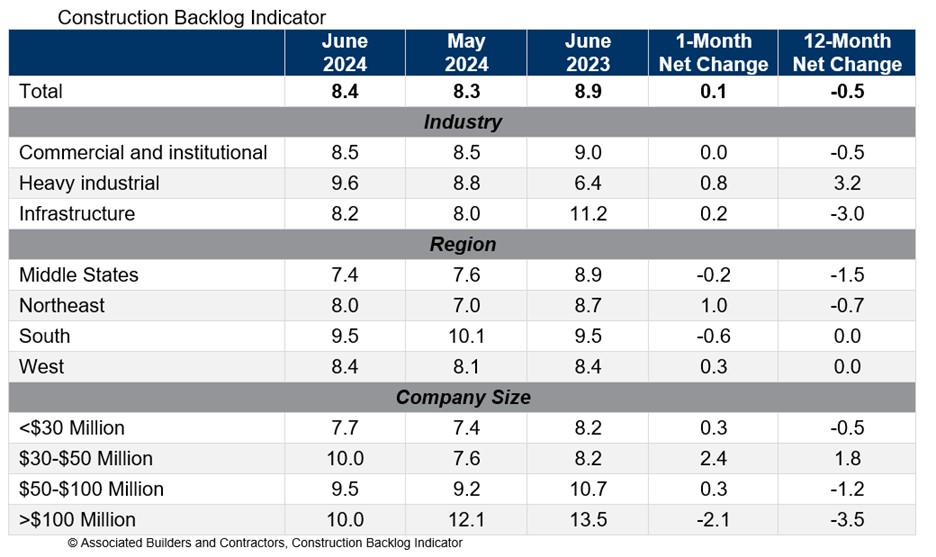
“Backlog continues to hold up remarkably well despite high interest rates, inflation and emerging weakness in the broader economy," said ABC Chief Economist Anirban Basu. “While contractor confidence regarding the outlook for sales and staffing levels fell modestly in June, all three Construction Confidence Index components are higher than they were one year ago.
“The combination of slowing inflation and softening growth suggests that the Federal Reserve may begin to lower interest rates as soon as September,” said Basu. “That will buoy backlog as some of the softer construction segments, like office and commercial, benefit from lower borrowing costs and looser lending standards.”
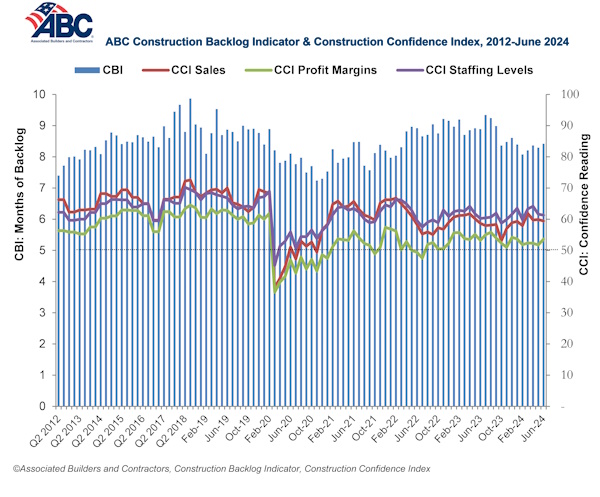
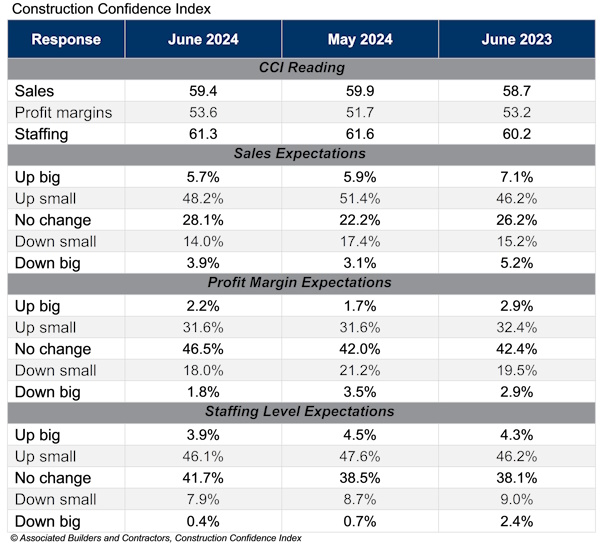
Related Stories
| Sep 30, 2022
Lab-grown bricks offer potential low-carbon building material
A team of students at the University of Waterloo in Canada have developed a process to grow bricks using bacteria.
| Sep 29, 2022
FitzGerald establishes Denver office
The new location bolsters FitzGerald’s nationwide reach and capitalizes on local expertise and boots-on-the-ground to serve new and existing clients seeking to do business in Denver and the Front Range, as well as the Southwest United States, California, and Texas.
| Sep 28, 2022
New digital platform to foster construction supply chains free of forced labor
Design for Freedom by Grace Farms and the U.S. Coalition on Sustainability formed a partnership to advance shared goals regarding sustainable and ethical building material supply chains that are free of forced labor.
| Sep 27, 2022
New Buildings Institute released the Existing Building Decarbonization Code
New Buildings Institute (NBI) has released the Existing Building Decarbonization Code.
| Sep 23, 2022
High projected demand for new housing prompts debate on best climate-friendly materials
The number of people living in cities could increase to 80% of the total population by 2100. That could require more new construction between now and 2050 than all the construction done since the start of the industrial revolution.
| Sep 23, 2022
Central offices making a comeback after pandemic
In the early stages of the Covid pandemic, commercial real estate industry experts predicted that businesses would increasingly move toward a hub-and-spoke office model.
| Sep 22, 2022
Gainesville, Fla., ordinance requires Home Energy Score during rental inspections
The city of Gainesville, Florida was recently recognized by the U.S. Dept. of Energy for an adopted ordinance that requires rental housing to receive a Home Energy Score during rental inspections.
| Sep 21, 2022
New California law creates incentive for installing outdoor dining safety barriers
A new California law provides an incentive for commercial property owners to install barriers to protect outdoor diners.
| Sep 21, 2022
Demand for design services accelerates
Demand for design services from U.S. architecture firms grew at an accelerated pace in August, according to a new report today from The American Institute of Architects (AIA).
| Sep 20, 2022
NIBS develops implementation plan for digital transformation of built environment
The National Institute of Building Sciences (NIBS) says it has developed an implementation and launch plan for a sweeping digital transformation of the built environment.


